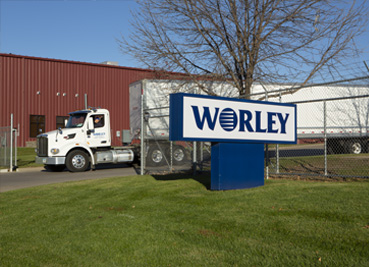
Ask a dozen supply chain managers to define “3PL”, “4PL,” and “LLP” and you are likely to get a dozen different answers. We desperately need some standard definitions.
Some time ago, as part of a supply chain course I was teaching I decided to introduce the class to the wonderful world of outsourcing. Almost immediately, we got bogged down in definitions. As an experiment, I asked the 16 students to come back the next week with a definition of “3PL”, “4PL”, and “LLP”. They were allowed to get these from any person or written source they cared to, except the class textbook. The result: 5 variations for “3PL”; 7 for “4PL”, and general confusion about what an LLP might be (except for 3 students who defined it as a Limited Liability Partnership).
Later that week, at a meeting of managers from a logistics service provider, I asked the same question. Although the managers were able to agree on a definition for “3PL”, when it came to “4PL” and “LLP’, they were even more confused than the students.
The term “3PL” was first used in the early 1970s to identify intermodal marketing companies (IMC) in contracts. Up to that point, contracts for transportation had featured only 2 parties, the shipper, and the carrier. When IMCs entered the picture – as intermediaries that accepted goods from the shippers and tendered them to the rail carriers – they became the third party to the contract, the 3PL. But over the years the definition has broadened to the point where these days, every company that offers some kind of logistics service calls itself a 3PL. (I recently saw an advertisement for a “3PL Logistics company).
The term 4PL has generated even more confusion. The term is generally considered to have been introduced by consulting firm Accenture which registered it as a trademark in 1996. Accenture described the 4PL (or fourth party logistics provider) as an integrator, but today consultants, software companies, and even 3PLs lay claim to being a 4PL. (And if Accenture decided to pursue every company that called itself a 4PL in violation of its trademark, no courthouse would be large enough to contain the litigants.)
The term LLP, or lead logistics provider, is probably the most transparent of the three. As the name suggests, a lead logistics provider “takes the lead” in providing some functions and subcontracts for others while providing one central control point. But wait. Isn’t that a 4PL?
By now you have gotten the idea. We desperately need some standard definitions. If it were mine to define, I would adopt the definition of 3PL found in the CSCMP Glossary, which reads as follows:
A firm that provides multiple logistics services for use by customers. Preferably, these services are integrated or bundled together by the provider. Among the services 3PLs provide are transportation, warehousing, cross-docking, inventory management, packaging and freight forwarding.
Since the CSCMPdefinitions get a little fuzzy on 4PL and LLP, I would suggest Accenture’s definition of 4PL:
A supply chain integrator that assembles and manages the recourses, capabilities, and technology of its own organization with those of complementary service providers to deliver a comprehensive supply chain solution.
As for the LLP, I would consider the following:
A lead logistics provider serves as the client’s primary supply chain management provider, defining processes and managing the provision and integration of logistics services through its own organization and those of its subcontractors.
Of course, it is also true that the whole semantic nightmare would disappear if we simply dispensed with the 3, the 4, and the L. If we just called the company what it is – a logistics service provider – the relationship would be clear. And for those who like acronyms, “LSP” neither assaults the ear nor twists the tongue. It is not that important how we define the terms, as long as we all do it the same way.